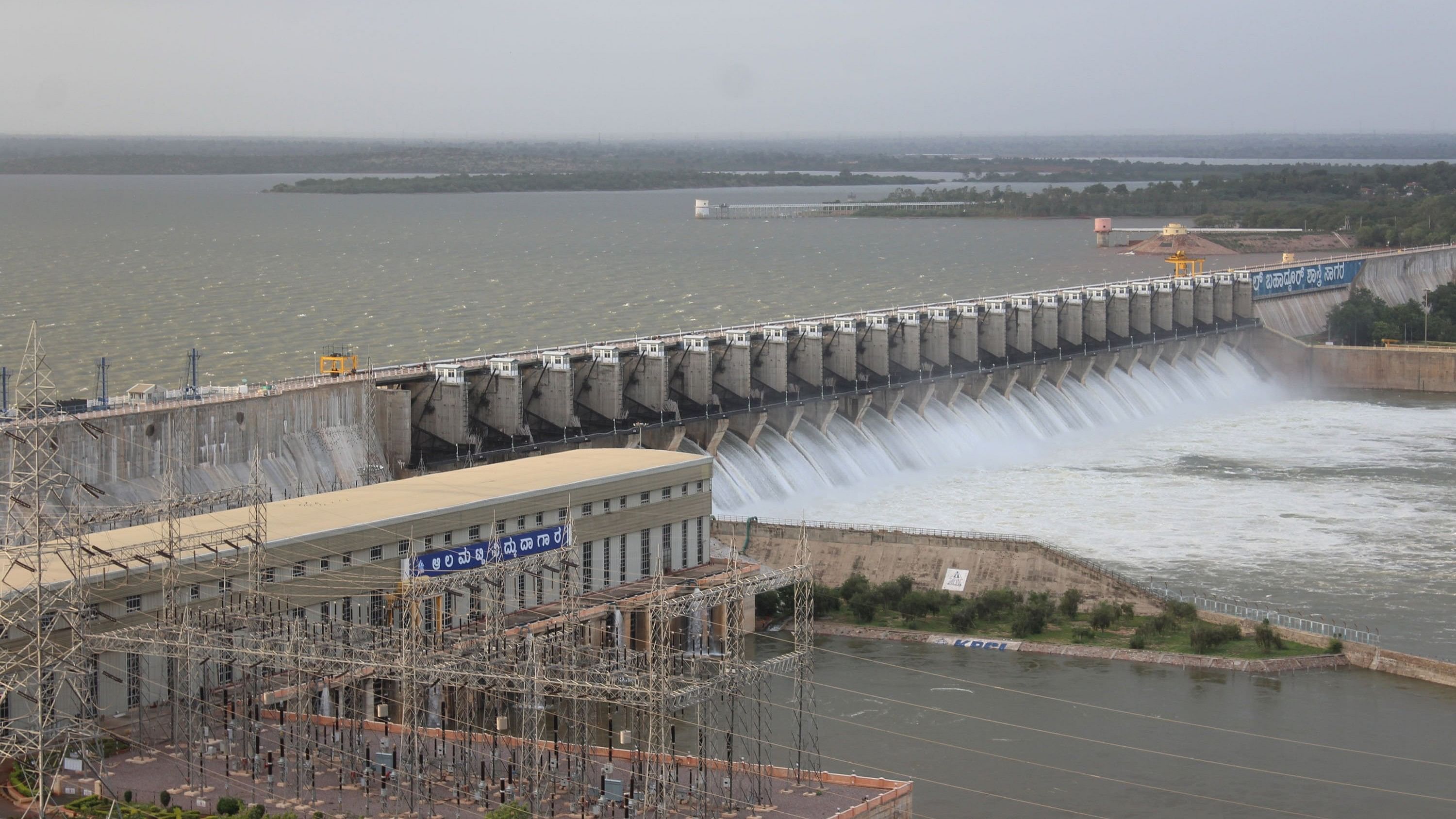
The Lal Bahadur Shastri Dam is also known as Almatti Dam
Credit: DH File Photo
Five significant irrigation and drinking water projects in Karnataka are languishing for several years, some even decades, and their benefits have not reached citizens, especially farmers. N B Hombal of DH explains.
These projects - Mahadayi, Mekedatu, Upper Bhadra, Upper Krishna and Navali - cumulatively cost over Rs 1.5 lakh crore, and cover about eight lakh hectares. Over the past two weeks, Karnataka faced fresh setbacks in the Mahadayi and Upper Bhadra projects.
The National Wildlife Board (NWB) did not clear the Mahadayi project. Instead, it granted approval to the Goa-Tamnar 400 kV power transmission line. Then, on September 5, the Jal Shakti ministry told Karnataka that providing funds for the Upper Bhadra project would depend on "available funds and geographical distribution".
The Cabinet has decided to take a delegation to PM Modi to discuss "injustice" to Kannadigas. The notion that Karnataka loses legal battles in water disputes must change, says Supreme Court senior advocate Mohan Katarki, who is no stranger to these matters.
"Karnataka’s aggressive advocacy has enabled significant gains in the Cauvery and Krishna water disputes. The Mahadayi project is stuck in an environmental tangle despite success in water allocation,” he points out.
Mahadayi
Amid opposition from Goa, Karnataka wants to use the Mahadayi river water from its tributaries Kalasa and Banduri to the drought-hit districts of north Karnataka. The state will use 3.9 tmc ft of water - 2.18 tmc ft from Banduri and 1.72 tmc ft from Kalasa river canals - for drinking water purposes.
In its August 2018 award, which the Centre notified in February 2020, the Mahadayi tribunal allocated 13.42 tmc ft of water to Karnataka, which includes 5.4 tmc ft for consumptive use. Now estimated to cost Rs 1,677 crore, Karnataka is awaiting environmental clearance from the union government to start work.
Mekedatu
The project involves constructing a balancing reservoir to regulate the flow of water to Tamil Nadu and utilise 4.75 tmc ft water for Bengaluru. It also proposes a 400 MW hydroelectricity plant.
This project was first conceived in 1996-97 as a power project costing Rs 730 crore. The revised estimate of this project is around Rs 14,000 crore.
Tamil Nadu’s stiff opposition and the union government's delay in providing clearances has kept the project on hold. Meanwhile, farmers groups from both states have proposed shifting the project from Mekedatu to Rasimanal.
Upper Bhadra
This lift irrigation scheme plans to cover 2.25 lakh hectares in the drought-prone districts of Chikkamagaluru, Chitradurga, Tumakuru and Davangere. Around 2006, the cost estimate was Rs 550 crore. It is now Rs 21,473 crore.
Finance Minister Nirmala Sitharaman had announced a grant of Rs 5,300 crore for the project in her February 2023 budget speech, but it is yet to be released.
Lack of funding, which is tied to the delay in declaring the project as a 'national project,' is hampering work.
Navali
The idea of building a balancing reservoir for the Tungabhadra reservoir goes back many years. But it was only in recent years that the plan was firmed up.
This is to compensate for the deficit in the storage of water due to accumulation of silt in the Tungabhadra reservoir. The previous BJP government proposed a balancing reservoir at Navali in Koppal. Both reservoirs will be linked via a flood canal. About 32 tmc ft of water will be diverted to the new reservoir, whose holding capacity will be about 45 tmc ft.
In 2022-23, the government earmarked Rs 1,000 crore for this. However, paucity of funds and lack of consultation with Andhra Pradesh and Telangana have kept the works pending.
Upper Krishna stage-III
Stage three of the Upper Krishna Project (UKP) will irrigate 14.6 lakh acres in Vijayapura, Kalaburagi, Raichur, Yadgir, Gadag and Koppal districts while increasing the height of the Almatti dam from 519 metres to 524 metres, which requires acquiring 1.34 lakh acres.
In 2012, the project was estimated at Rs 17,207 crore. Now, the estimated cost is around Rs 1 lakh crore.
The project has moved at a snail’s pace due to delays in land acquisition, which has become a costly affair, as well as the Centre not notifying the 2013 award of the Krishna water disputes tribunal-II, giving 177 tmc ft to Karnataka, which plans to use 130 tmc ft for irrigation.